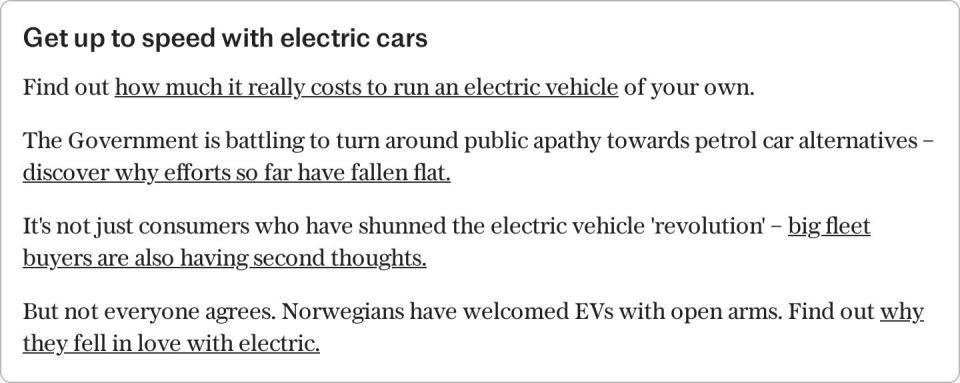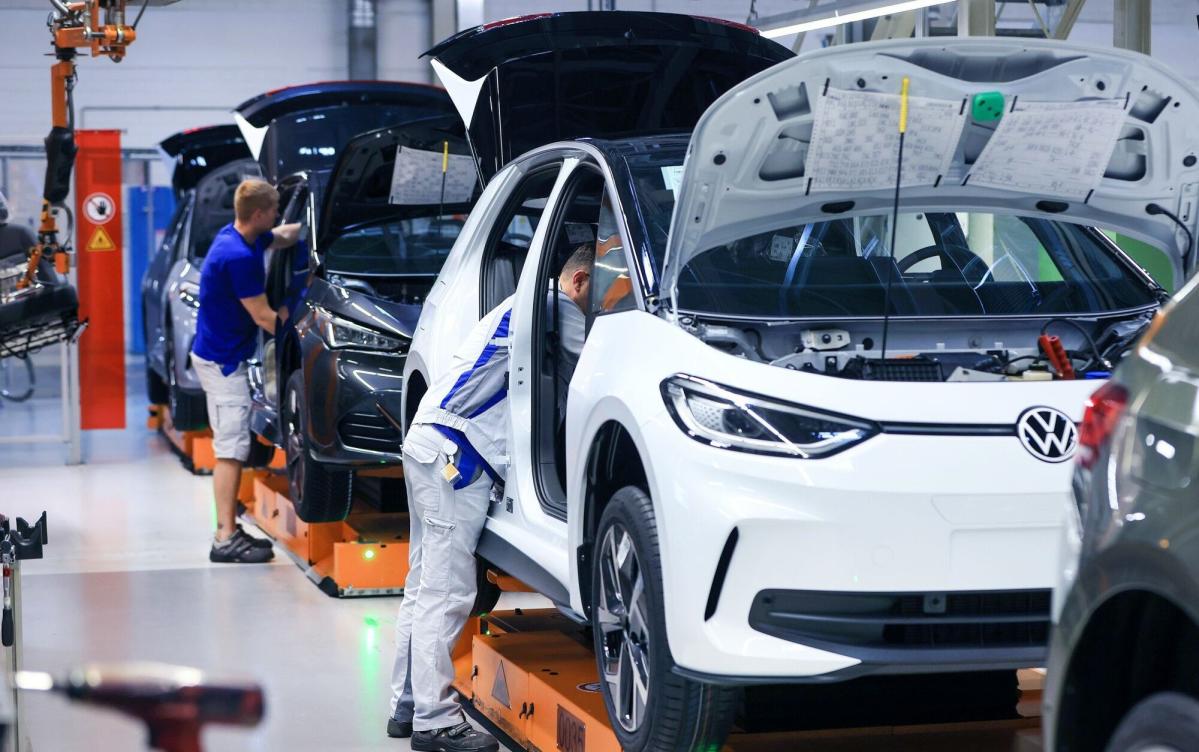Sales of Volkswagen’s electric cars have fallen by almost a quarter in Europe as demand for battery-powered vehicles declines and buyers return to petrol.
Electric vehicle (EV) sales fell 24% in the first three months of the year as high inflation and rising energy prices dampened demand.
Globally, sales of fully electric vehicles among owners of Audi, Skoda and Porsche fell by 3 percent to 136,400, while sales of cars with combustion engines rose by 4 percent to almost two million.
The fall in demand for electric cars comes as politicians in the region roll back subsidies and reconsider ambitious targets to ditch petrol and diesel cars.
In September, Prime Minister Rishi Sunak pushed back a deadline to block sales of new petrol and diesel in Britain from 2030 to 2035. In 2022, incentives for motorists who bought new electric cars were removed.
Data shows demand for petrol cars in Britain is rising faster than electric models.
EV registrations last month were up just 3.8% on a year earlier, according to figures released last week by the Society of Motor Manufacturers and Traders, while petrol engine sales rose 9.2%.
Volkswagen sells some of the most popular electric car models in Britain, including the Audi e-Tron range and Volkswagen ID.
EU officials, meanwhile, are considering weakening a similar ban on petrol and diesel cars in the bloc to allow the use of synthetic fuels – so-called e-fuels – that can power an internal combustion engine.
Matthias Schmidt, founder of Schmidt Automotive Research, said Volkswagen was hit by the abolition of subsidies for the sale of electric vehicles in Germany. The EU has also frozen emissions targets for fleets, hampering sales.
Mercedes-Benz also reported an 8% drop in EV sales on Wednesday, blaming “the abrupt end of a tax stimulus” in Germany and the phasing out of a popular electric model from its Smart brand.
Volkswagen’s EV sales are also coming under pressure as European automakers face increasing competition from an influx of new Chinese-made electric cars. Brands like BYD offer battery-powered cars at a lower price than Western rivals.
The EU has launched an investigation into the subsidies Beijing offers to Chinese car manufacturers. Experts from Germany’s Kiel Institute estimate that BYD has received more than 3.4 billion euros in Chinese subsidies in recent years alone, Bloomberg reported on Wednesday.
BYD was contacted for comment.
Although sales of electric cars fell sharply in Europe, they rose by almost 91 percent in China, Volkswagen said.
Hildegard Wortmann, member of the Volkswagen Board of Management, said: “Our diversified product portfolio gives us the necessary flexibility to compensate for fluctuations in demand in certain segments – as is currently the case with fully electric vehicles – in others.”
The decline in Volkswagen sales follows a sharp decline in deliveries at Tesla, the West’s largest electric vehicle maker. Last week, Elon Musk’s company reported an 8% decline in sales in the March quarter.
Not all companies are struggling: BMW said on Wednesday that sales of electric vehicles rose 28% in the three months through March. Deliveries of battery-powered models such as the i4, iX1 and i7 increased by 41% in the period.
However, several carmakers have pushed back plans to launch new electric cars as motorists’ enthusiasm for them falters.
Bentley, Volkswagen’s British carmaker, has postponed plans to launch its first electric car until 2026.
Supercar brand Lamborghini, also owned by the German car giant, will not start selling a fully electric model until 2028.
Stellantis, the car giant that owns Peugeot, Vauxhall and Maserati, said on Wednesday it would extend production of its petrol-powered Fiat Panda until 2030. The manufacturer planned to switch its best-selling city car to a fully electric car in 2027.
Other automakers have backtracked on their expansion plans. Ford has postponed production of two new electric models, while Mercedes-Benz earlier this year dropped plans to make its range fully electric by the end of 2030.


Broaden your horizons with award-winning British journalism. Try The Telegraph free for 3 months with unlimited access to our award-winning website, exclusive app, money-saving offers and more.





